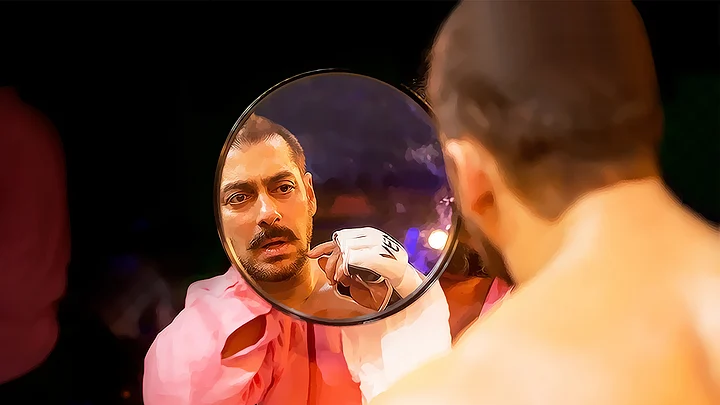A set of recent incidents involving gruesome rapes of women across the country has yet again raised several questions about Indian society and judiciary. We at The Quint believe that a rape survivor’s life doesn’t end when she is raped. And that even if our institutions - law, the judiciary, the hospitals - are failing a rape survivor, we as a society need to step up. And keep the fight going. We are publishing this article originally published on 24 June 2016 from The Quint’s archives as part of our #KeepFighting campaign.
As a feminist, I have watched the controversy around Salman Khan’s rape comment with absolute rage, so a warning is in order before you proceed, dear reader.
If you are expecting another opinion piece educating Salman Khan about how ‘rape’ means a violent, sexual assault not to be used as a throwaway comment describing physical exhaustion (something which a public figure with his kind of fanatical following should have already known), I will have to disappoint you.
I don’t want to educate Salman Khan about rape, sexual assault or what it actually feels like to be raped in India. And I couldn’t care less about his mythical, forthcoming apology.
When Rape is A Shallow Headline
I don’t care, not because I’m not horrified by instances of rape in India or unaware of the fact that 92 rapes are reported in India every day. It’s because I am disgusted by the way the conversation around ‘rape’ has become a tug of war between Bhai fans and not-Bhai fans.
Also Read: Why Salman Khan’s Rape Remark Doesn’t Shock Us
It’s because I am angry that with one stupid, thoughtless comment, a Bollywood star has brought a debate on rape on prime time news, but without crucial arguments about consent, victim blaming and caste exploitation.
It’s because while the media storm after his comment has exposed the way patriarchy is ingrained in our language and the almost cavalier way we treat sexual assault, the ways in which inefficiencies in legal systems and corruption in judiciary collude to deny a survivor of rape any possibility of justice, remains unexposed.
‘Felt Like a Raped Woman’: Socially Ostracised, Constantly Unsafe and Denied Justice?
They laughed as they ripped my clothes with a blade and described my body parts to each other. I was a toy they were trying out. I begged them to let me go.Kiran (name changed), 20, Rape Survivor
Kiran was raped by four men over four days in different districts in Haryana such as Panipat, Sonepat and Kurukshetra, as reported by the Open magazine. In the aftermath of the rape, Kiran was boycotted by her in-laws. She was labelled a prostitute.
When she filed a case, it took six months for the case to go to court. The violence she experienced within and outside the home after the rape was further exacerbated because she was a Dhanuk; a lower-caste, landless community in the village.
When sexual assault intertwines with caste oppression, a woman experiences trauma far more permanent than the inability to ‘walk straight’. But even when caste is not an omnipresent factor, in places like Delhi and Mumbai, sexual assault is inevitably associated with shame simply because the society thinks that a woman’s honour resides in her vagina.
After a 29-year-old model was allegedly raped by Mumbai Policein 2014, she went to a doctor for a check up. When she told the doctor that she was a model and sexually assaulted by policemen, the doctor replied that her ‘story’ was probably false.
Also Read: Watch: “Just Because I am a Model it Does Not Make Me Easy”
Describing her experience in a newspaper report, the survivor said
He gagged me, threw me on the table and forced himself on me. Mujhe happy kar de (Make me happy), he kept on repeating as he sexually abused me. I was crying. I tried pushing him away but he was too strong. He later zipped himself up and opened the door.Rape Survivor
Psychological trauma experienced by rape is one of the main factors that a rape survivor has to consider.
When those who are supposed to protect women in a city, are complicit in a rape, women in an entire city feels constantly unsafe and threatened. But, I am sure Salman Khan knows what it’s like to constantly feel threatened, right?
Also Read: Why I’m Critical of Media’s Outrage Over Salman’s Rape Remark
Undoubtedly, Salman Khan’s comment was offensive and of course, he should apologise. But please, for Gods sake, let’s not make him and this comment, the focal point around which we as a society build the argument against rape, consent, intersectionality and sexual assault.
He just doesn’t deserve it.
(At The Quint, we question everything. Play an active role in shaping our journalism by becoming a member today.)
